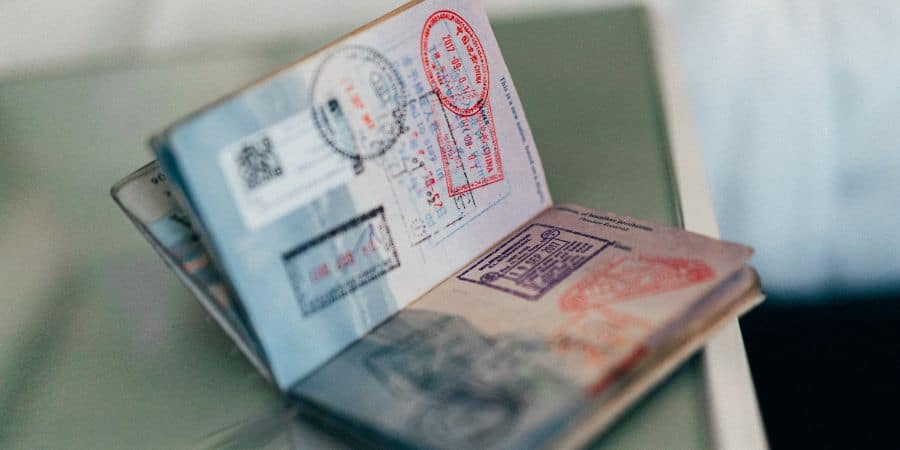
-
Save
How to Successfully Apply for a Visa for Spain
Applying for a visa for Spain and getting your head around its entry requirements might seem complicated. But there’s no need to get stressed – we’ve created a step-by-step guide to make the visa application process easier for you. So preparing for your trip to Tenerife will be a piece of cake.
Key Takeaways
- Early application: start your visa application process early to ensure you meet all deadlines.
- Essential documents: gather necessary documents including passport, photos, and proof of financial stability.
- Avoid scams: only follow official procedures for visa applications; avoid services promising expedited visas for a fee.
- Long-term stay: for stays exceeding 90 days, a long-term visa is required. Always check the latest travel regulations.
- Consular assistance: in case of issues like a lost passport, consulates offer support.
- Visa fees: costs vary by visa type, with short-stay visas typically costing around 80 euros for adults.
Do I need a visa for Spain?
As Tenerife is a part of Spain, EU citizens can visit the island without any restrictions. Passport-holders from Iceland, Norway, Liechtenstein, and Switzerland also don’t need visas.
If you don’t have a passport from one of the above-mentioned countries, then you will need to apply for a visa. There are some citizens however who can stay in Spain for 90 days within a 6 months time frame without a visa (check the list below if your country qualifies for that).
Find up-to-date information on visa requirements for Spain here.
What kind of visa types are there?
Most travelers to Spain need a tourist visa, also called a Schengen visa, which is valid for the whole Schengen area. There are 22 EU member states (22 of which are Schengen countries) and Iceland, Norway, Switzerland, and Liechtenstein are also members. There are no border controls in this area and the visa policy is the same. If you have a Schengen visa, you can travel to all 26 Schengen states, not just Spain.
If you come to Spain for one of our language courses or for a digital marketing course as an EU citizen, there is no need to apply for a visa, as you can enter the country with your national identity document or with your valid and current passport. If you are not an EU citizen, you can apply for a student visa. If you are entering from a third country, you can apply either for a Schengen visa or for a student visa.
A tourist visa is the right choice for courses lasting up to 90 days. If the course lasts longer, you must apply for a long-term student visa.
In addition to working visas, there are also specific visas that might be useful for Digital Nomads who plan to stay in Spain for longer periods.
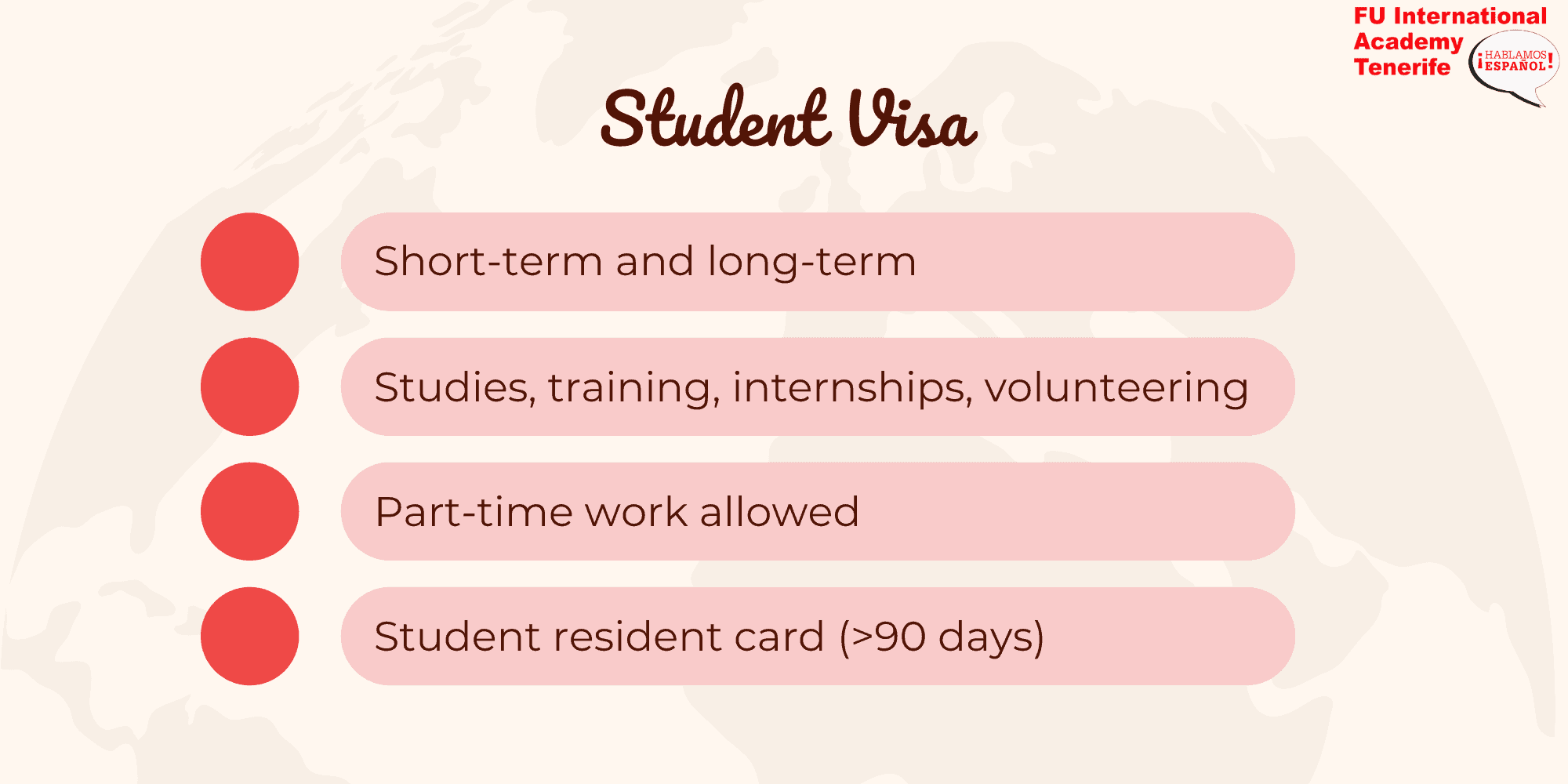
-
Save
Two types of student visa
Short-term student visa
Short-term student visas allow you to stay up to 90 days in Spain. Once you are in Spain, you cannot renew your short-term student visa. You must apply for a new visa in your home country.
Long-term student visa
It is possible to apply for a long-term student visa if you plan to stay in Spain for more than 90 days. If you enter Spain on a long-term student visa, you must apply for a student resident card within one month after your arrival. For this, you need to visit the Immigration Department’s office (Oficina de Extranjeros).
Student visas allow students to take language courses, graduate from universities, train and conduct research without receiving a salary from them. However, the student visa now allows you to work part-time (up to 30 hours per week) during your studies, if it doesn’t affect it.
Before you can apply for a working visa in Spain, you must first obtain a work permit. You cannot apply for a work permit yourself. Your employer must do it for you.

-
Save
How to Apply for a Schengen or Student Visa for Spain?
Get in touch with your nearest Spanish Embassy or Consulate. When booking an appointment, have information about the type of visa required. You should check the website of that specific embassy or call them directly. Try to get an appointment at least four weeks before you begin your trip if you are seeking a tourist or student visa.
All necessary documents must be submitted at this appointment personally (see below which documents are required for a tourist and student visa).
It usually takes about two to four weeks for the visa to be processed after you have submitted all the required documents.
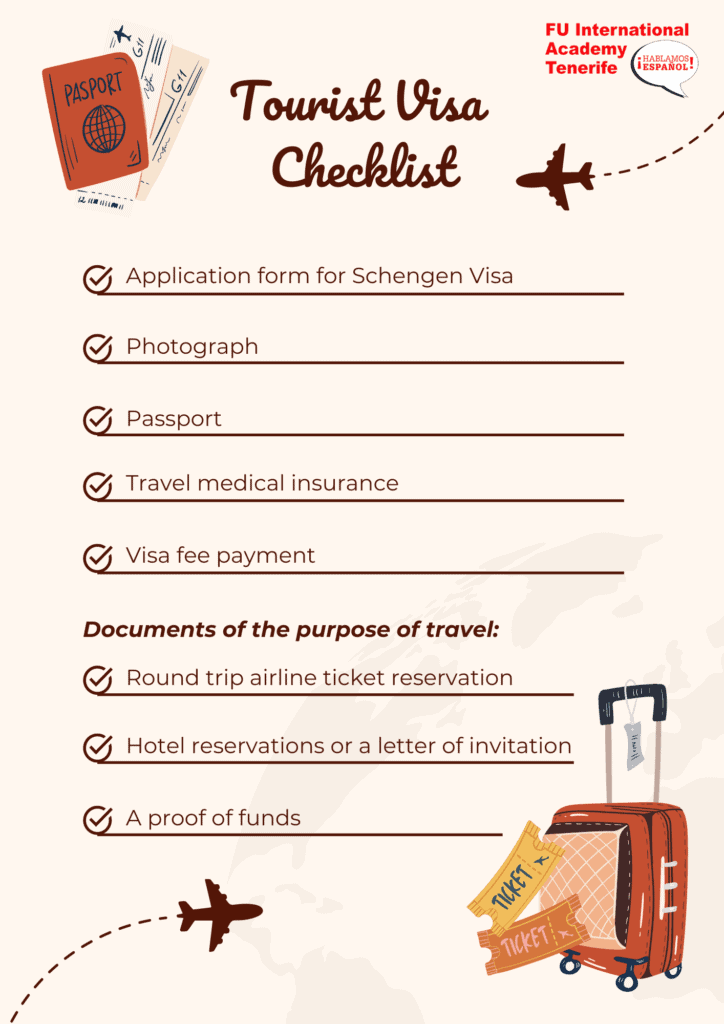
-
Save
What to bring for your tourist visa application
- Completed and signed Application form for Schengen Visa.
- Photograph taken against a light background, passport-size, in color.
- Passport issued within the last ten years and valid for at least three months after your return date.
- Travel medical insurance that covers your entire stay.
- Visa fee payment.
- Documents confirming the purpose of travel (i.e. a letter from our school stating that you study Spanish here), the duration of the stay and the intention of the visa applicant to leave the Schengen area before the visa expires.
- Travel itinerary with a round trip airline ticket reservation.
- Hotel reservations or an original letter of invitation.
- Bank statement printed, as it is supposed to prove that you have enough money to care for yourself during the time of your stay. If you are supported by your spouse or parents, you have to present a proof of your civil status (marriage certificate or birth certificate) as well as the latest two bank statements of the person who is supporting you.
Don’t forget: All documents have to be presented in Spanish or English.
You can check for more detailed information here, or on the website of the closest consulate next to you.
What to bring for your student visa application
- Completed and signed Application for a National Visa form.
- Photograph taken against a light background, passport-size, in color.
- Passport issued within the last ten years. There has to be at least two blank pages left for the visa. Original and photocopy of the biometric data page(s).
- A copy of an official and signed letter that indicates the company, the position, and the reason for and duration of your stay.
- A Certificate of No Criminal Conviction from every country that the applicant has lived in the last 5 years. Note that Certificates issued by local police stations are sometimes not accepted.
- A Medical Certificate issued by your doctor stating that you do not suffer from any of the diseases which need quarantine under the International Health Regulation (2005). Check how it should look like here.
- Visa fee payment.
These requirements can vary from country to country. Some Spanish Embassies or Consulates might ask you for more paperwork – others will be fine with less. Don’t get stressed out by this.
You can check for more detailed information here, or on the website of the closest consulate next to you.
What to bring for other types of visas
The types of visas you can apply for in Spain are numerous. Visas for family members of a citizen of the European Union, self-employed work visas, internship visas, employee visas (or work visas), long-term residence visas with the possibility to work or not, airport transit visas, etc.
There is no need to list all the required documents since the Spanish government describes each type of visa and its requirements explicitly here.
Visa processing times
Getting your visa on time is important. For Spain, the process usually takes about 15 working days from the day you submit your application. This period might be longer if there’s a lot of people applying or if your case needs more looking into.
Plan ahead and apply early! Sometimes, officials may need extra days to check everything. Keep an eye on holidays too – these can make the process slower. If you need a visa fast, ask the Spanish consulate if they have quicker options for you.
Visa fees
Paying for a Spain visa depends on the type, length, and purpose of your stay. The fee can change so it’s smart to check the latest cost before you apply. Often, short-stay Schengen visas cost around 80 euros for adults and are less for children.
If you’re applying for a longer visa or a different kind, like a work or residence visa, the price might be higher. Always have the correct fee ready when you submit your application.
Student Visa at FU International Academy
Seems like a lot of work? If you’re enrolling in a Spanish course at our FU International Academy Tenerife, there is no need to worry. We will make sure you get all the help you need in applying for a visa for Spain.
For students requiring a student visa, it’s crucial to start the application process at least two months prior to your arrival on the island, as processing can take up to 5-6 weeks. Our Intensive 20 Course is specifically designed to meet visa requirements, offering 20 lessons per week and catering to all levels from A1 to B2. This course not only ensures compliance with visa regulations, but also provides a comprehensive learning experience with flexible starting dates.
Upon deciding to enroll with us, we will guide you through the registration process and provide all necessary documentation, including a confirmation, an invoice for your course, and a letter of acceptance, which is essential for your visa application. Any changes in course start dates due to delays from the Embassy or Consulate are accommodated without any extra charge. In the unfortunate event of a visa denial, we offer a refund policy, retaining only a small fee for administrative purposes.
We highly recommend securing travel and health insurance while planning your trip to Tenerife. This insurance not only protects you against cancellation due to illness or accident, but also ensures a worry-free learning experience. Our team is dedicated to providing support and information. We are committed to making your visa application process as smooth as possible, allowing you to focus on what is important – learning Spanish and experiencing the vibrant culture of Spain.
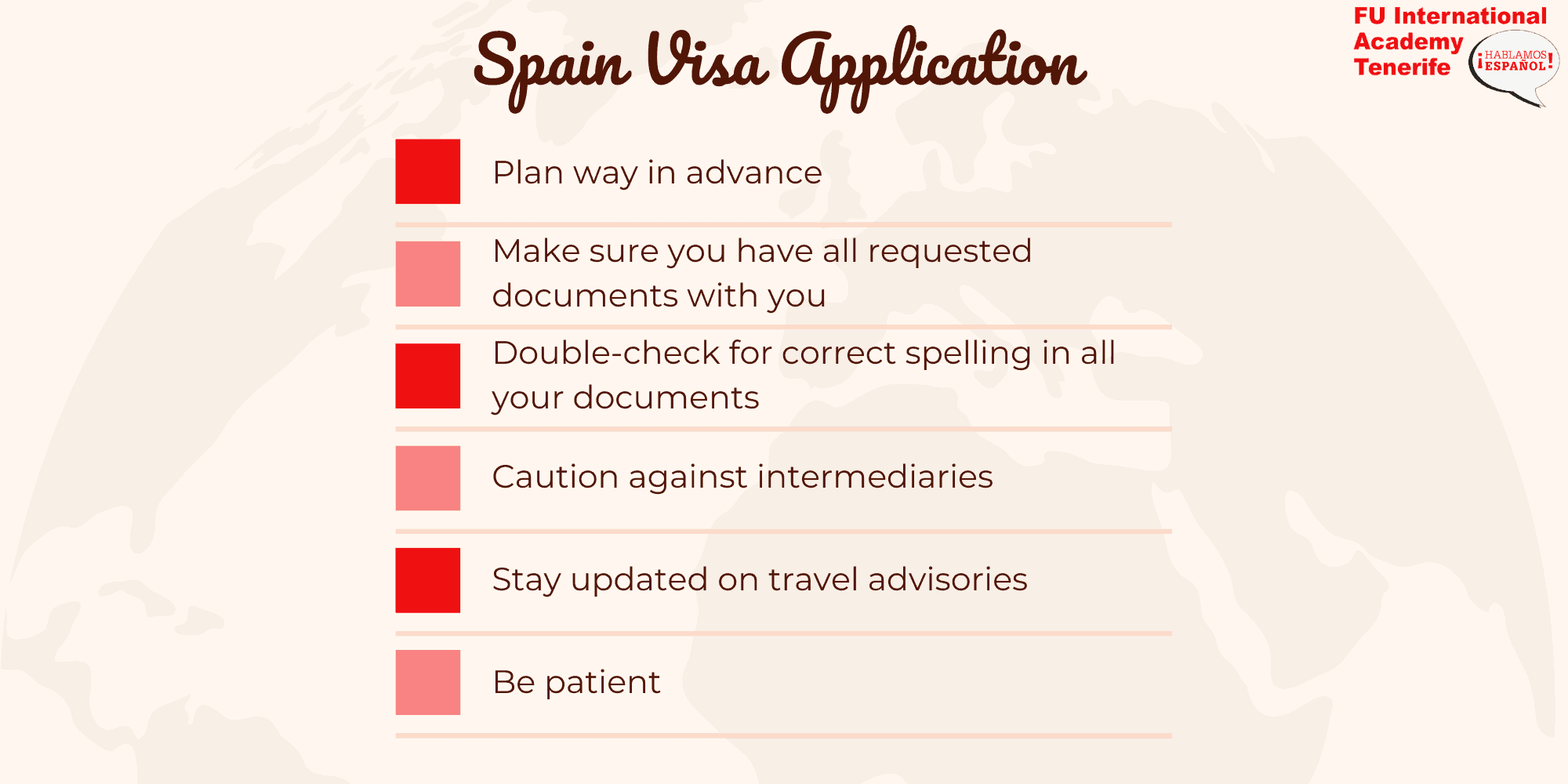
-
Save
Spain Visa Application in a Nutshell
Plan way in advance
Visas for Spain can take up to six weeks to obtain. Do not rely on the estimated processing times, however. Make an appointment with the Spanish Embassy at least six weeks before your departure.
Make sure you have all requested documents with you
Make sure you have all the necessary documents with you before heading to the Spanish Embassy. Spain requires many documents. The responsible administrators will make sure everything is in order.
Since getting an appointment at a Spanish Embassy is difficult, you do not want to be sent away.
Double-check for correct spelling in all your documents
If you submit an application with spelling errors, your visa application may be rejected. To ensure that everything is spelled correctly, always double- or even triple-check. Make sure the spelling of your name on your passport and any other document is the same.
If you are applying for a Student Visa, the school you plan to attend needs to be spelled correctly. Your visa officer will also check this. A minor error could result in your visa being denied. We advise you to review all your documents carefully. For example, if you want to study Spanish at FU International Academy Tenerife in Puerto de la Cruz, you have to write the full name of our school.
Caution against intermediaries
Be careful with people who say they can help you get a Spanish visa for money. You might hear about services that promise to make the visa process faster or easier if you pay them.
It’s best to apply for your Spain visa directly through official channels. The Spanish authorities have their own steps and checks for giving out visas. If someone else says they’ll do it quicker, don’t trust them.
Stay updated on travel advisories
Check the latest news about travel to Spain. Rules can change fast, and you don’t want any surprises. Check your country’s embassy in Spain to find updated information and look there before your trip to know what is happening.
Also, keep an eye out for emails or alerts if you signed up for them. They tell you important updates like new entry rules or safety concerns in Spain. This way, you’ll travel smart and be ready for anything that comes up.
Be patient
For your own peace of mind – be patient. At times, it can be difficult to meet requirements and provide documents and then have to wait.
Stay calm and remember that it is your gateway to Tenerife and having a great time here. One more thing: be empathic with the employees at the Spanish Embassy. They can’t speed up the process of getting your visa.
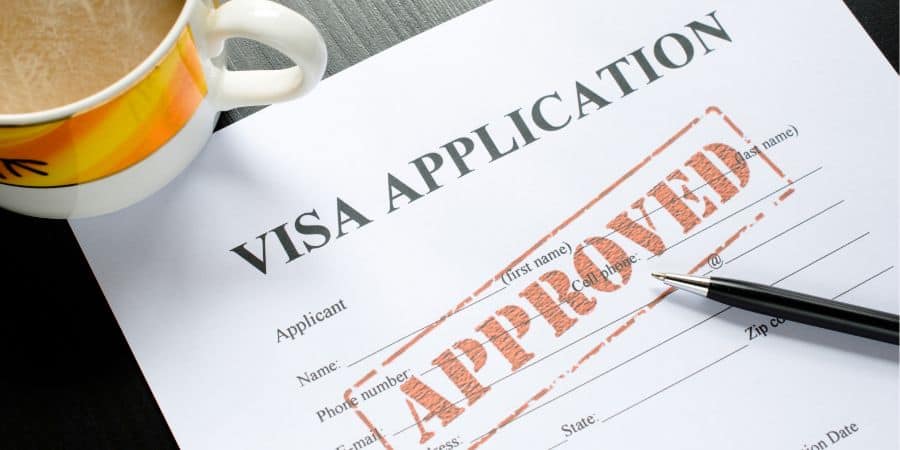
-
Save
Conclusion
Applying for a Spain visa can be simple. Get your papers ready and know the rules. Stay informed about travel news, and ask your country’s consulate if you need help. Good planning means a great trip to Spain! Remember, each step is key to your visa success.
FAQs
What types of visas can I apply for to enter Spain?
There are different Spain visa types, such as tourist and visitor visas, business visas, and more. You must pick the right one based on why you’re visiting.
Do I need a visa to travel to Spain?
It depends on your nationality. Some people must obtain a visa before they arrive in Spain – check if that includes you!
How do I submit my Spain Schengen visa application?
Complete the application form with care, gather all your documents, and submit your visa application at the consulate or embassy.
Will I have an interview when applying for a visa for Spain?
For sure! After you apply for a visa, there’s usually an interview at the consulate general where they’ll ask questions about your trip.
How long is my Spanish visa valid after it’s issued?
This varies! Your issued sticker tells how many days you can stay – typically up to 90 days within six months is standard.
If something goes wrong while in Spain as a visitor, who do I contact?
If trouble finds you or if you become victims of crime, reach out immediately to your country’s resources; they’ve got help just for travelers like you.
Useful Links
- Required Documentation to Visit Tenerife
- Schengen, Borders and Visa
- Applying for a Schengen Visa to Spain
- Spain – Embassies and Consulates
- Consular Services
- Study Visa
- Schengen Visas
- Digital Nomad Visa
- Non-working (Non-lucrative) Residence Visa

-
Save
Stay informed and never miss a beat!
Sign up for our newsletters and receive the latest updates on Tenerife and Spanish learning content. Plus, be the first to know about exciting news, events and exclusive deals in Tenerife. Subscribe now and make the most of your Tenerife experience!



